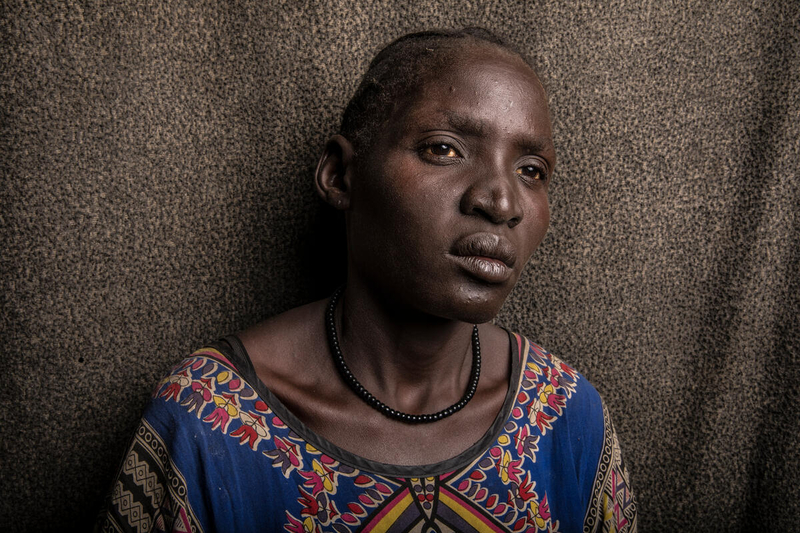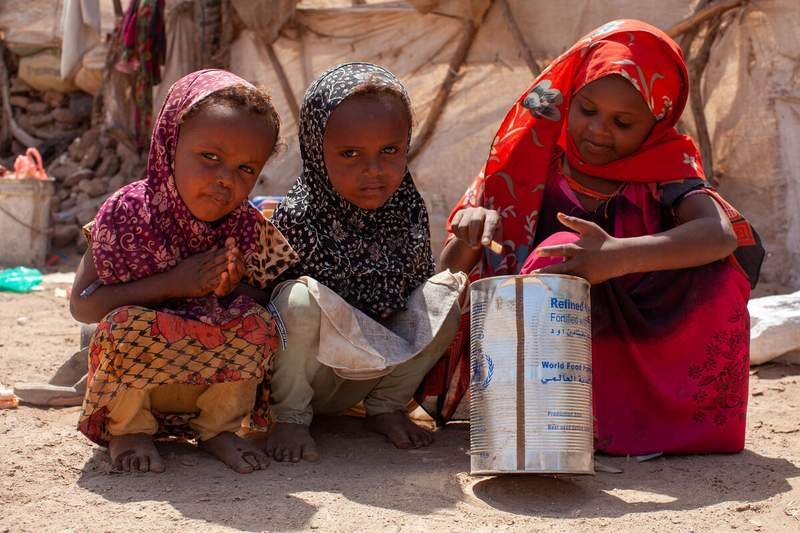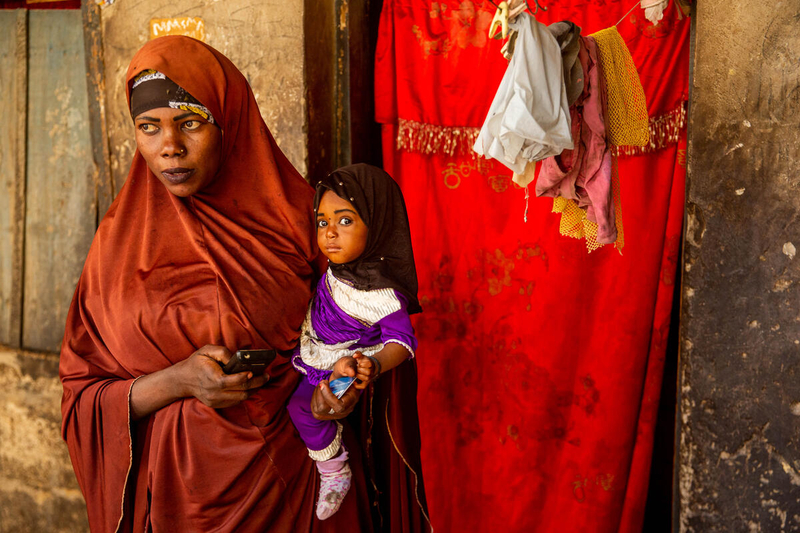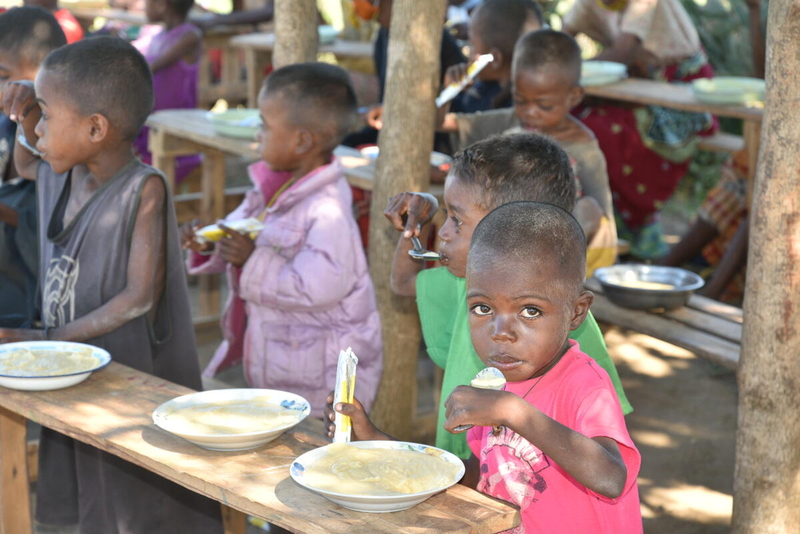We Can Choose to End Famine. We Just Need to Recognize That It Exists.

Search Google for “food” and you’ll get back 7,640,000,000 results. Type in “hungry” and you’ll net 536,000,000. Everyone needs to eat.
Yet search for “famine” and you will get a paltry 38 million results.

Hyat and her three children (pictured) fled their home in Yemen because of airstrikes and now live in an Internally Displaced Person (IDP) camp.
Famine in the World Today
Famine – the word no one wants to say – is the most severe manifestation of hunger, with widespread malnutrition and mass deaths by starvation. About 160,000 people combined in Yemen and South Sudan may die of hunger at any moment, while it was announced just weeks ago that hundreds of thousands of people in Madagascar are on the brink of starvation. Another 41 million people worldwide are teetering on the edge of famine in 43 countries.
Again, everyone needs to eat.
Human Action (or Inaction) Causes Famine
Alex de Waal, executive director of the World Peace Foundation and researcher on the history of recent famine, has argued, “people starve in [famine-stricken] countries because bad policy, especially war, transforms manageable stress into a disaster that costs lives.”
If that’s the case – that human action or inaction, more than anything, drives the conditions that consign innocent people to starve to death – it stands to reason that the solution to famine is also in the hands of men and women. If human-made conflict, poor governance, weak economic management, corruption and inequitable systems can get us into this crisis, we must do more to reverse those choices, including through funding proven programs managed by the United Nations World Food Programme (WFP) and other organizations.
No doubt, conflict is the biggest and most blunt-force driver of conditions that can lead to famine. In fact, the denial of food to large populations is too often a cruel and ruthless weapon of war.

Civil war in South Sudan has killed nearly 400,000 since 2013 and displaced millions from their homes.
Yemen is widely considered the site of the world’s worst humanitarian crisis, which has been largely due to a shattering civil war that has killed more than 230,000 people (many of them children) over seven years. Nearly half of the deaths have been caused by hunger and illness.
Again, if human choices are mostly responsible for famine, then what choices can we make to end them?
How Do We Prevent Famine?
There is really only one choice for all of us – and a moral choice: to do everything possible to rescue those falling into the pit of famine and give others the tools to stay far from its precipice. To not choose is to be a bystander – and a propagator of famine.

To be sure, ending famine is a difficult task. By the time a famine is declared, it’s already too late for too many. People are already dying of hunger, so relief efforts switch to saving those who can be saved. But there are steps that can and must be taken to mitigate and eventually end famine.
The organization my nonprofit supports, the U.N. World Food Programme, has, since its beginnings, been the first responder to the threat and actual arrival of famine. In the short-term, its most powerful tool is emergency food assistance, which is critical to mitigate or avert the direct impact of food insecurity and famine. Over the longer term, we employ more complex interventions like strengthening education, nutrition, livelihoods and social protection systems.

The U.N. World Food Programme needs $5 billion for emergency food assistance for famine relief, as well as an additional $500 million for projects like training and educating farmers; promoting resilience building in communities to resist, adapt and recover from shocks; and building and rehabilitating agricultural assets to promote long-term security.
It’s also essential that the international community do everything possible to stop or wind down the conflicts that are largely driving food insecurity and other humanitarian crises. Conflict restricts access of humanitarian relief, destroys agriculture and other means of food production. Peace-building is essential to food security.
“Famines,” de Waal writes, “arise from political and moral choices: the powerful decide whom should be allowed — or forced — to die and why.”
The powerful can choose another way too: an end to famine.




